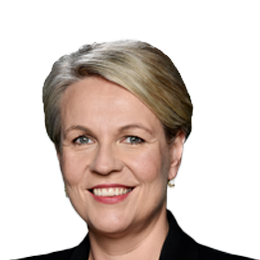
Australia's latest waste figures in new report
The biennial 2022 National Waste Report released today has found that Australians generated almost 3 per cent more waste compared to 2018/19.
The report illustrates that while the Liberals and Nationals set ambitious targets on waste and recycling, they did not do anything to achieve them. The report found that Australia’s recycling rate remains stagnant at 60%.
The report also shows that:
• In 2020/21, Australia generated an estimated 75.8 million tonnes (Mt) of waste, equivalent to 2.95 tonnes per person.
• The largest waste categories were building and demolition materials (25.1 Mt), organics (14.4 Mt), ash (12.0 Mt), and hazardous waste (7.4 Mt).
• Recycling and recovery rates were highest for metals (87%), building materials (81%), paper and cardboard (62%), organics (58%) and glass (59%).
View the report here.
Quotes attributable to Minister for the Environment and Water, the Hon Tanya Plibersek:
“Waste is increasing, but the proportion of waste we’re recycling isn’t. Every bit of rubbish that ends up in landfill is a missed opportunity to contribute to a circular economy in which nothing is wasted.
“We know that the way we are doing things now is not sustainable.
“Australians want to reduce their waste and use fewer disposable items in the first place – but we have to set up our economy to help them do this. We need to get serious about reducing resource waste – including reducing the use of plastic in the first place.
“Environment ministers committed in October this year to work with the private sector to design out waste and pollution, keep materials in use and foster markets to achieve a circular economy.
“I recently announced the formation of a new Circular Economy Ministerial Advisory Group. This group will provide advice about opportunities for Australia and strategies that will help us to get more value from the resources we use throughout our economy.
“There are 3.3 times more jobs in recycling for every job in landfill. That’s why we’re investing $250 million in infrastructure and state-of-the-art advanced recycling solutions to sort, process and remanufacture plastic, glass, paper, and tyres into valuable new products.
“This includes $60 million in the recent budget for hard-to-recycle plastics such as soft plastics.
“We’re also supporting industry led product stewardship to keep materials in use.
“The Albanese Labor Government stands ready to regulate if industry does not achieve results by themselves.”
